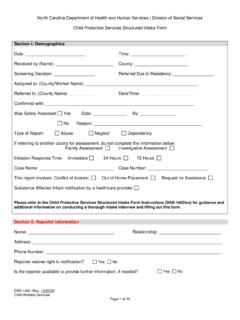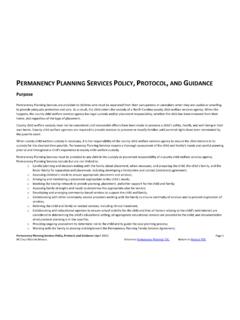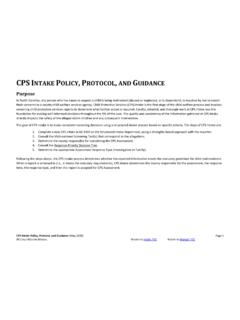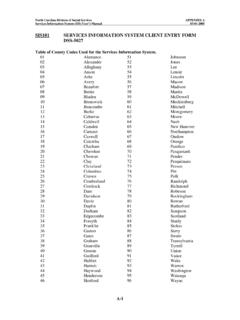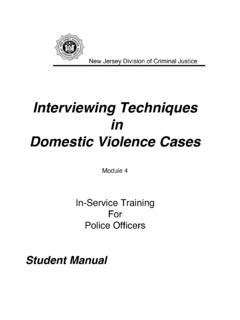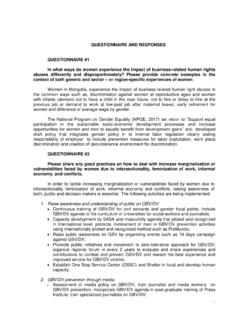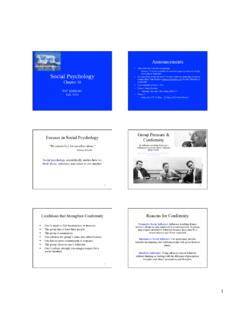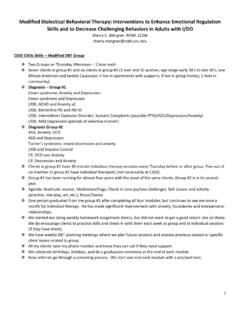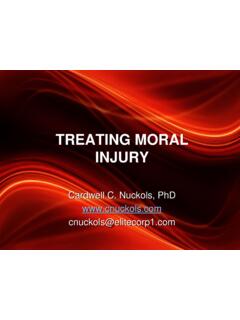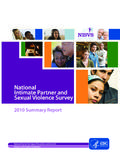Transcription of NORTH CAROLINA STRENGTHS & NEEDS ASSESSMENT
1 NORTH CAROLINA STRENGTHS & NEEDS ASSESSMENT DSS-5229 Revised 11/18 Family Support and Child Welfare Services Page 1 of 2 County _____ Case Number: _____ Case Name: _____ Date ASSESSMENT Completed: _____ Date Report Received: _____ Social Worker Name: _____ Indicate either Initial or Reassessment and #: 1 2 3 4 5: _____ Children:_____ Caregiver(s): _____ Some items apply to all household members while other items apply to caregivers only. Assess items for the specified household members, selecting one score only under each category. Household members may score differently on each item. When assessing an item for more than one household member, record the score for the household member with the greatest need (highest score).
2 Caregivers are defined as adults living in the household who have routine responsibility for child care. For those items assessing caregivers only, record the score for the caregiver with the greatest need (highest score) when a household has more than one caregiver. S-CODE TITLE TRAITS SCORE S1. Emotional/Mental Health a. Demonstrates good coping b. No known diagnosed mental health c. Minor or moderate diagnosed mental health d.
3 Chronic or severe diagnosed mental health _____ S2. Parenting Skills a. Good parenting b. Minor difficulties in parenting c. Moderate difficulties in parenting d. Destructive parenting _____ S3. Substance Use a. No/some substance b. Moderate substance use c. Serious substance use _____ S4. Housing/Environment/ a. Adequate basic Basic Physical NEEDS b. Some problems, but c. Serious problems, not d. Chronic basic NEEDS _____ S5.
4 Family Relationships a. Supportive b. Occasional problematic relationship (s)..0 c. Domestic d. Serious domestic discord/domestic _____ S6. Child Characteristics a. Age-appropriate, no b. Minor c. One child has severe/chronic d. Child(ren) have severe/chronic problem(s).
5 3 _____ S7. Social Support Systems a. Strong support b. Adequate support c. Limited support d. No support or destructive _____ NORTH CAROLINA STRENGTHS & NEEDS ASSESSMENT DSS-5229 Revised 11/18 Family Support and Child Welfare Services Page 2 of 2 S8. Caregiver(s) Abuse/ a. No evidence of problem ..0 Neglect History b. Caregiver(s) abused/neglected as a child .. 1 c.
6 Caregiver(s) in foster care as a child ..2 d. Caregiver(s) perpetrator of abuse/neglect in the last five _____ S9. Communication/ a. Strong skills .. -1 Interpersonal Skills b. Appropriate skills ..0 c. Limited or ineffective skills ..1 d. Hostile/destructive ..2 _____ S10. Caregiver(s) Life Skills a. Good life b. Adequate life skills ..0 c. Poor life skills ..1 d. Severely deficient life skills ..2 _____ S11. Physical Health a.
7 No adverse health problem .. 0 b. Health problem or disability .. 1 c. Serious health problem or disability .. 2 _____ S12. Employment/Income a. Employed ..-1 Management b. No need for employment ..0 c. Underemployed ..1 d. Unemployed ..2 _____ S13. Community Resource a. Seeks out and utilizes resources .. -1 Utilization b. Utilizes resources .. 0 c. Resource utilization problems .. 1 d. Refusal to utilize resources .. 2 _____ Based on this ASSESSMENT , identify the primary STRENGTHS and NEEDS of the family. Write S code, score, and title. STRENGTHS NEEDS S Code Score Title S Code Score Title 1.
8 _____ _____ _____ 1. _____ _____ _____ 2. _____ _____ _____ 2. _____ _____ _____ 3. _____ _____ _____ 3. _____ _____ _____ Children/Family Well-Being NEEDS : 1. Educational NEEDS : _____ 2. Physical Health NEEDS : _____ 3. Mental Health NEEDS : _____ Social Worker: _____ Date: _____ Supervisor's Review/Approval: _____ Date: _____ NORTH CAROLINA FAMILY ASSESSMENT OF STRENGTHS AND NEEDS INSTRUCTIONS DSS-5229 Instructions Revised 11/18 Page 1 of 6 Family Support and Child Welfare Services DEFINITIONS Some items apply to all household members while other items apply to caregivers only.
9 Persons who are in the home during many of the hours of supervision ( , mother's boyfriend who is in the home most evenings but has a different address and and so would not meet the definition as a caretaker) are to be considered household members. Assess items for the specified household members, selecting one score only under each category. Household members may score differently on each item. When assessing an item for more than one household member, record the score for the household member with the greatest need (highest score). In cases where two households are involved, a separate Family STRENGTHS and NEEDS ASSESSMENT shall be completed on both households.
10 S1. Emotional/Mental Health a. Demonstrates good coping skills. Caregiver(s) takes initiative to deal with problems in a constructive manner. b. No known diagnosed mental health problems. Caregiver(s) has no known diagnosed emotional or mental health problems. May require a mental health evaluation. c. Minor or moderate diagnosed mental health problems. Caregiver(s) has moderate diagnosed emotional or mental health disorders (such as depression, anxiety, and anger/impulse control) that interfere with ability to problem solve, deal with stress, and effectively care for self and/or child(ren). d. Chronic or severe diagnosed mental health problems.
